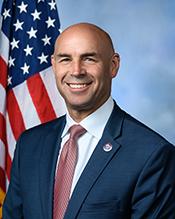0
0
0
Federal Mask Mandate Limitations Act
3/8/2023, 8:12 PM
Summary of Bill HR 8408
Bill 117 HR 8408, also known as the Federal Mask Mandate Limitations Act, is a piece of legislation introduced in the US Congress. The purpose of this bill is to limit the authority of the federal government to mandate the wearing of masks in response to public health emergencies.
The bill states that the federal government cannot require individuals to wear masks, except in certain circumstances. These circumstances include when an individual is in a healthcare setting or when traveling on public transportation. The bill also prohibits the federal government from imposing fines or penalties on individuals who choose not to wear masks.
Supporters of the bill argue that mandating mask-wearing infringes on individual freedoms and that decisions about mask-wearing should be left to state and local governments. They also argue that there is insufficient evidence to support the effectiveness of mask-wearing in preventing the spread of infectious diseases. Opponents of the bill argue that mask-wearing is an important public health measure that can help prevent the spread of diseases like COVID-19. They argue that the federal government has a responsibility to protect public health and that mandating mask-wearing is a necessary measure to achieve this goal. Overall, the Federal Mask Mandate Limitations Act is a controversial piece of legislation that raises important questions about the balance between individual freedoms and public health. It will be interesting to see how this bill progresses through the legislative process and what impact it may have on future public health policies.
The bill states that the federal government cannot require individuals to wear masks, except in certain circumstances. These circumstances include when an individual is in a healthcare setting or when traveling on public transportation. The bill also prohibits the federal government from imposing fines or penalties on individuals who choose not to wear masks.
Supporters of the bill argue that mandating mask-wearing infringes on individual freedoms and that decisions about mask-wearing should be left to state and local governments. They also argue that there is insufficient evidence to support the effectiveness of mask-wearing in preventing the spread of infectious diseases. Opponents of the bill argue that mask-wearing is an important public health measure that can help prevent the spread of diseases like COVID-19. They argue that the federal government has a responsibility to protect public health and that mandating mask-wearing is a necessary measure to achieve this goal. Overall, the Federal Mask Mandate Limitations Act is a controversial piece of legislation that raises important questions about the balance between individual freedoms and public health. It will be interesting to see how this bill progresses through the legislative process and what impact it may have on future public health policies.
Current Status of Bill HR 8408
Bill HR 8408 is currently in the status of Bill Introduced since July 18, 2022. Bill HR 8408 was introduced during Congress 117 and was introduced to the House on July 18, 2022. Bill HR 8408's most recent activity was Referred to the Subcommittee on Railroads, Pipelines, and Hazardous Materials. as of July 19, 2022
Bipartisan Support of Bill HR 8408
Total Number of Sponsors
1Democrat Sponsors
0Republican Sponsors
1Unaffiliated Sponsors
0Total Number of Cosponsors
0Democrat Cosponsors
0Republican Cosponsors
0Unaffiliated Cosponsors
0Policy Area and Potential Impact of Bill HR 8408
Primary Policy Focus
HealthComments
Sponsors and Cosponsors of HR 8408
Latest Bills
Protect America's Workforce Act
Bill HR 2550December 13, 2025
Incentivizing New Ventures and Economic Strength Through Capital Formation Act of 2025
Bill HR 3383December 13, 2025
Lower Elwha Klallam Tribe Project Lands Restoration Act
Bill HR 2388December 13, 2025
World War II Women's Memorial Location Act
Bill HR 2290December 13, 2025
Public Lands Military Readiness Act of 2025
Bill HR 5131December 13, 2025
Cormorant Relief Act of 2025
Bill HR 2293December 13, 2025
Providing for consideration of the bill (H.R. 2550) to nullify the Executive Order relating to Exclusions from Federal Labor-Management Relations Programs, and for other purposes.
Bill HRES 432December 13, 2025
Quinault Indian Nation Land Transfer Act
Bill HR 2389December 13, 2025
Electric Supply Chain Act
Bill HR 3638December 13, 2025
Make SWAPs Efficient Act of 2025
Bill HR 1676December 13, 2025
Fair Care Act of 2022
Bill HR 8588March 8, 2023
